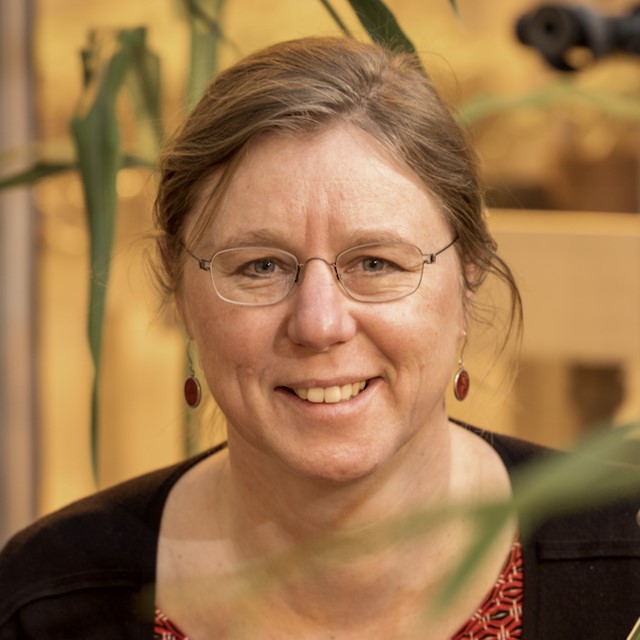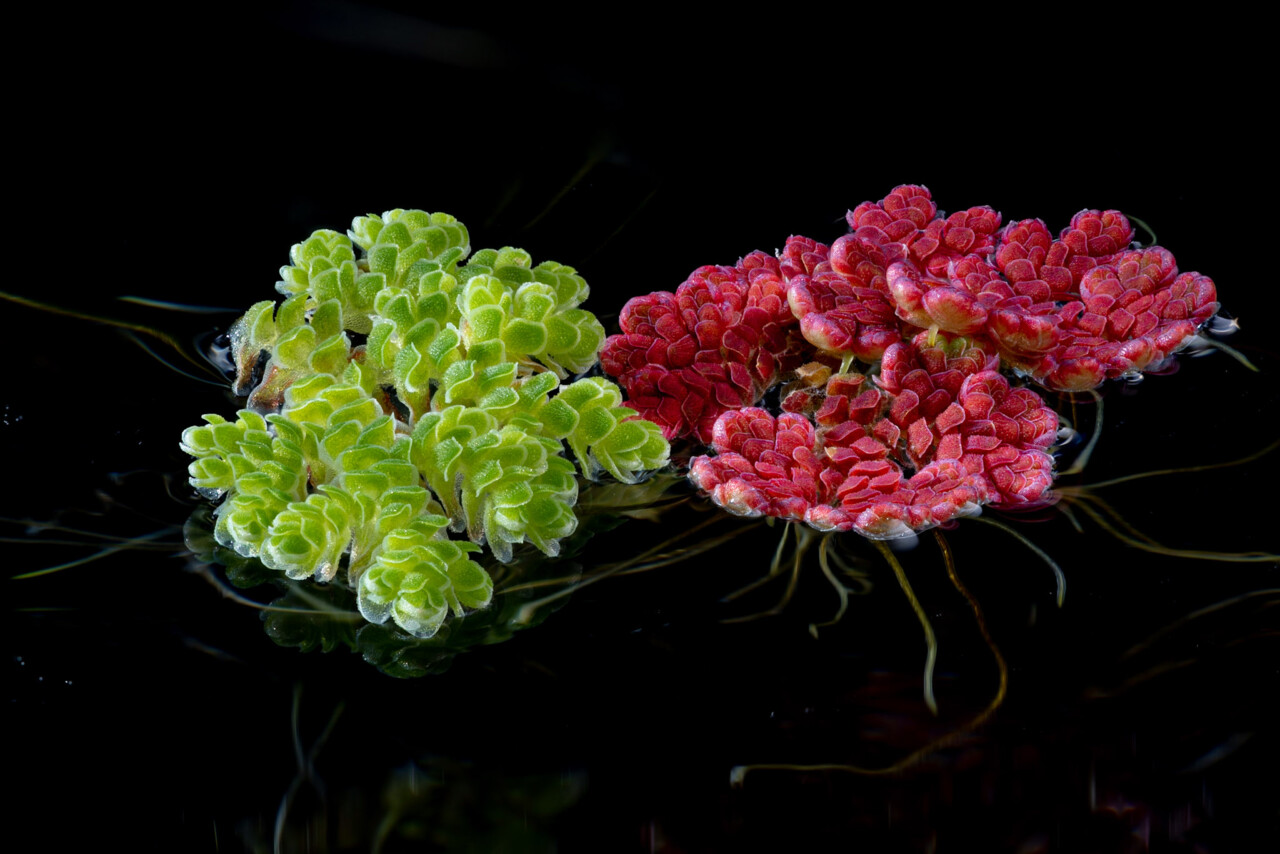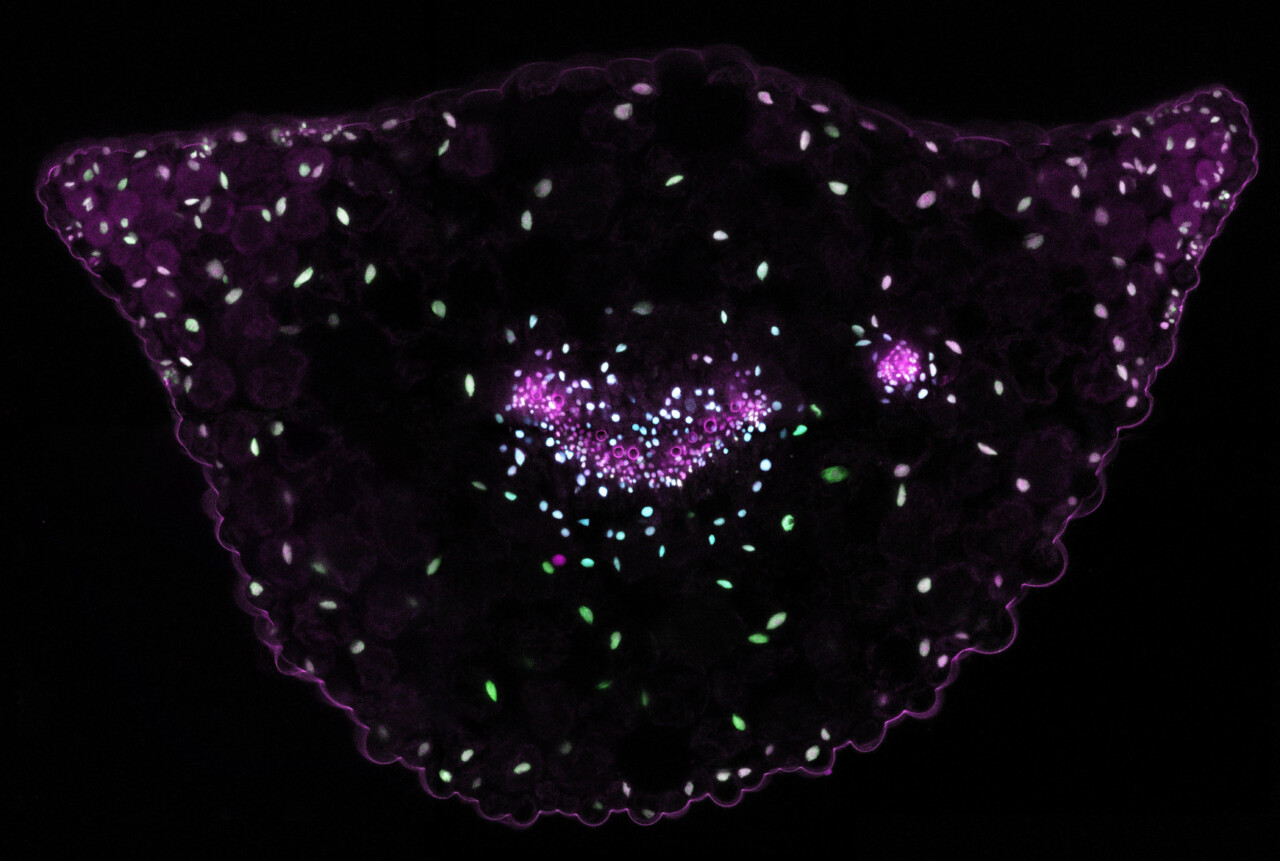EPS Theme 1 – Developmental Biology of Plants
The research within this theme aims at elucidating the molecular and cellular bases of the processes that govern plant development. During development of plants, the genetic information contained in the zygote is passed to successive generations of cells by cell division. During this process the cells become arranged in tissues and organs with different specific functions. In seed plants, the zygote develops first into an embryo that is stored in the seed, and only after seed germination the post-embryonic development of the plant body starts. A key role in the development of plants is played by the primary meristems, which are laid down in the embryo. They produce new cells that differentiate into tissues and organs, depending on the position of the meristem in the plant. During the vegetative stage of the plant, the primary meristems and secondary meristems form organs such as roots, stems, leaves, and with the transition to flowering, floral organs. In addition to the genetic information carried by the meristematic cells, internal signal molecules such as growth regulators, and external factors such as light, temperature and availability of nutrients also contribute to the embryonic and/or post-embryonic development of the plant.
Theme 1 Coordinator: Kaisa Kajala
 Kasia Kajala is an associate professor in the Plant-Environment Signaling group at Utrecht University. Her research focuses on environmental signaling of various plant cell types. She functional genomics, histology, molecular biology, and genetics approaches to understand cell type-specific development and gene regulatory networks in a diversity of plant species. Kaisa is originally from Finland, studied at University of Cambridge, postdocced at University of California Davis, and found her home with other tall people in the Netherlands in 2017. Her favorite cell type is exodermis with trichomes as close second.
Kasia Kajala is an associate professor in the Plant-Environment Signaling group at Utrecht University. Her research focuses on environmental signaling of various plant cell types. She functional genomics, histology, molecular biology, and genetics approaches to understand cell type-specific development and gene regulatory networks in a diversity of plant species. Kaisa is originally from Finland, studied at University of Cambridge, postdocced at University of California Davis, and found her home with other tall people in the Netherlands in 2017. Her favorite cell type is exodermis with trichomes as close second.
Theme 1 Coordinator: Viola Willemsen
EPS Theme 2 – Interactions between Plants and Biotic Agents
Plants dynamically interact with a wide range of organisms, some of these are harmful (e.g. pathogens, pests and even parasitic plants) while others are beneficial (e.g. growth- or resilience inducing microbes, pollinators, natural enemies of pests) for the plant. These interactions are not only interesting objects for study, but they are also highly relevant as plant pathogens and pests destroy nearly 35% of the world’s annual crop harvest. Researchers in this theme study wild and cultivated accessions of economically important crops, such as potato, tomato, barley, tobacco and Brassicaceae, next to model species such as clover and Arabidopsis thaliana. The ecological, physiological and molecular interactions of these plants with a wide range of biotic agents, such as viruses, bacteria, fungi, oomycetes, nematodes, plants, insects, and mites are investigated. The main research focus lies on: (a) pathogenicity and virulence factors from the invader, (b) resistance and susceptibility of the hosts, (c) multitrophic interactions in which a plant is exposed simultaneously to various stresses and (d) how plants balance interactions with both antagonists and mutualists. Understanding the ecological context that shapes plant adaptations to various stresses will unravel evolution of plant resilience to the myriad of stresses they are exposed to. Elucidation of the molecular mechanisms underlying these intricate interactions will contribute to the development of disease resilient crops that retain compatibly with beneficial organisms.
Theme Coordinator : Erik H. Poelman

My research team studies the interactions between plants and insects addressing curiosity driven questions on how plants defend themselves against the numerous insects they harbour, what shapes the composition of these insect communities and how insect behaviour is adapted to the complexity of the ecological communities they are part of. Fundamental understanding of these interactions is key in development of sustainable and resilient agriculture in which pest insect occurrence is kept below an economic threshold using plant traits and insect interactions such as biological control to reduce pesticide use.
Our research focuses on the mechanisms and community-wide consequences of the induced responses of plants to insect herbivore damage as a major component of plant defence strategies. A central theme in our studies are induced plant responses to herbivory that initiate interaction networks among many members of plant-insect communities, such as herbivores, parasitoids, hyperparasitoids, and pollinators.
Theme Coordinator : Frank Takken
My main research interest is elucidating of the molecular and biochemical mechanisms underlying disease-resistance and -susceptibility in plants. I want to understand how the immune system of a plant functions and translates pathogen recognition into effective defence responses. Furthermore, I want to know how pathogens manipulate their hosts and manage to evade its immune system. Thereto, I am keen on developing new technologies, which can also be applied to convert knowledge into novel strategies for disease resistance.
https://www.uva.nl/profiel/t/a/f.l.w.takken/f.l.w.takken.html\
EPS Theme 3 – Metabolism and Adaptation
EPS theme 3 combines two fields of plant biology that are intimately connected, Metabolism and Adaptation. Metabolism underlies the functioning of plants, ranging from the fundamental primary processes of photosynthesis and respiration to the synthesis of, sometimes species-specific, secondary metabolites that are responsible for an enormous diversity in traits in the plant kingdom. At the same time, plants are plastic: they continuously sense their environment and adjust their metabolism, growth and development to deal with external changes. This ability to acclimate is a key determinant of their fitness. Over evolutionary time, natural selection has resulted in the great variation in constitutive and inducible environmental adaptation strategies that are found within and among plant species. Insight into the metabolism and adaption of plants helps us to understand how biological processes are regulated and supports the breeding for novel traits, such as those necessary to sustainably maintain yield in the face of climate change and resource limitations.
Theme Coordinator: Ivo Rieu

Dr Ivo Rieu is interested in the physiological basis of plant stress responses and tolerance traits, in particular those related to the effect of high temperature on plant fertility. With a combination of approaches, from cytology and physiology to genomics and genetics, he aims to understand which processes become rate limiting in times of stress and which responses are adaptive. By targeting both, model and crop species, the research generates fundamental as well as urgently needed applicable knowledge and contributes to the development of sustainable, climate-smart agriculture.
Theme Coordinator: Charlotte Gommers
EPS Theme 4 – Genome Biology and Gene Regulation
In order to understand the enormous phenotypic complexity observed in plants, the genome plays a central role. For a plant to function optimally, its genes must be selectively expressed at the right time and in the right tissue, and transposons must be inactivated to stabilize the genome. This complex process involves a wide range of molecules, and genetic and epigenetic mechanisms, for example regulatory elements, transcription factors, histone and DNA modifications, non-coding RNAs, and chromatin folding. It is a fundamental scientific question how the interplay between genomes, transcripts, proteins and metabolites results in the phenotypic complexity we observe. Different ways of genome organization are involved, and different levels of genome and gene regulation, from the nuclear organization of the genome to the binding of transcription factors and transcription. Moreover, a variety of evolutionary processes shape genome organization and genetic regulation. To study plant genome biology, theme 4 also includes research topics as recombination, phylogeny and evolution, as well as how to translate findings from model organisms to relevant crops. Theme 4 therefore encompasses several disciplines ranging from genetics, to epigenetics, genomics, bioinformatics, biosystematics and plant breeding. Given the broad scope and the important role of genome data throughout all of plant biology, theme 4 is intimately connected with other themes.
Theme Coordinator: Maike Stam
My main research interests are the mechanisms underlying epigenetic and chromatin regulation of gene expression. Eukaryotic gene regulation is a very  complex process in which a wide range of molecules and mechanisms play a role, such as different types of DNA sequences, proteins and RNAs, genetic and epigenetic mechanisms. The rapid advances in high-throughput sequencing, but also advances in other techniques have enabled many exciting new discoveries in the field of gene regulation. Research in my team focuses on gene regulation through cis-regulatory sequences, and epigenetic and chromatin-based mechanisms. We use plants (maize, tomato, Arabidopsis, and oilseed rape) as a model system and mainly focus on two research lines: 1) Regulation by epigenetic mechanisms & chromatin structure, 2) Control of gene expression by cis-regulatory sequences.
complex process in which a wide range of molecules and mechanisms play a role, such as different types of DNA sequences, proteins and RNAs, genetic and epigenetic mechanisms. The rapid advances in high-throughput sequencing, but also advances in other techniques have enabled many exciting new discoveries in the field of gene regulation. Research in my team focuses on gene regulation through cis-regulatory sequences, and epigenetic and chromatin-based mechanisms. We use plants (maize, tomato, Arabidopsis, and oilseed rape) as a model system and mainly focus on two research lines: 1) Regulation by epigenetic mechanisms & chromatin structure, 2) Control of gene expression by cis-regulatory sequences.
Theme Coordinator: Aalt-Jan van Dijk
My research focuses on the development and application of machine learning approaches to analyze plant -omics  data. Recently, this includes for example the development of protein-structure based machine learning to analyze protein function and interaction. This allows to get insight into the molecular mode of action of e.g. important transcription factors such as MADS domain proteins. Other examples of applying machine learning include prediction of meiotic crossovers in various plants based on genome sequence data, prediction of gene regulatory interactions or modelling genotype-phenotype relationships.
data. Recently, this includes for example the development of protein-structure based machine learning to analyze protein function and interaction. This allows to get insight into the molecular mode of action of e.g. important transcription factors such as MADS domain proteins. Other examples of applying machine learning include prediction of meiotic crossovers in various plants based on genome sequence data, prediction of gene regulatory interactions or modelling genotype-phenotype relationships.



